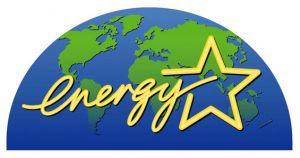
We all know to look for the Energy Star rating when purchasing products like appliances, windows, and lighting. There are also labels like the Electronic Product Environmental Assessment Tool (EPEAT) and Greenpeace's Guide to Greener Electronics to look at if you are in the market to make greener purchasing choices. Now there will be one more label added to your green electronics, created by the Sustainability Consortium.
Numerous green retailers (Walmart, Best Buy, Dell, HP, Intel, and Toshiba) have teamed up with Arizona State University and the University of Arkansas to form the consortium. The main goal of the group is to create the tools companies need to evaluate and develop the next generation of sustainable products and give customers a consistent way to determine how green their purchases are.
The first line of business for the Sustainability Consortium was to develop a new label to identify green electronics. The consortium hopes to go beyond the other labels by also taking into consideration the impacts the products have on the users, manufacturers, and disposers. The different environmental impacts of the products through each stage in their lifecycle will also be a factor considered.
Beyond the label, the consortium will create a central database for product information required to make decisions on purchasing. This data will be used in a tool available to all members of the supply chain to help calculate their products' LCA, and also enable innovation to create greener products. With a central database for all products, manufacturers can compare themselves to other companies, and report their own information without needing to give up on proprietary information.
The first round of products available in the system will be laptops, desktops, and computer displays, to be releases sometime in the third quarter. As more brands come on board, the list of products available for review will expand. The Sustainability Consortium is not looking to create an "index" for green brand products, nor is it looking to be another certification program for sustainability. The data they provide could certainly be used by green brands to create their own internal certification program or personal index system, but the board is more interested in educating consumers and manufacturers, not creating a seal of approval similar to Energy Star.
Home
film
Share Green Brands come together to form the Sustainability Consortium to rate green electronics
Share Green Brands come together to form the Sustainability Consortium to rate green electronics
Artikel Terkait
Subscribe to:
Post Comments (Atom)

EmoticonEmoticon